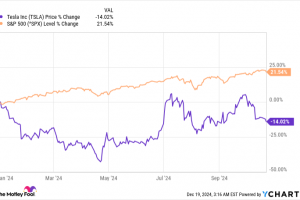
(Bloomberg) — European stocks and US equity futures followed Asian shares lower after the latest data from China showed more weakness in the world’s second-biggest economy.
Most Read from Bloomberg
The Stoxx Europe 600index fell about 0.4% at the open, with all industry sectors in the red and real estate leading the decline. Contracts on the S&P 500 and Nasdaq 100 followed suit, suggesting US stocks may dip as markets reopen after the Independence Day holiday.
China’s sputtering services industry is raising concern about the outlook for global economic growth at a time when most major central banks are still in tightening mode. With more interest-rate hikes anticipated from the Federal Reserve and the European Central Bank in July, an aggregate gauge of borrowing costs calculated by Bloomberg Economics now shows a peak of 6.25% this quarter, up from 6% foreseen three months ago.
Fears that the US may be heading for a recession is sapping demand for equities after a stellar rally in the first half, driven mostly by mega-cap tech stocks. Traders will monitoring the minutes of the Fed’s latest policy meeting, which left Wall Street perplexed as officials paused their rate-hike cycle after 10 consecutive moves, but forecast two additional increases this year.
“It’s too early to say how deep the recession that is to come will be, but clearly a slowdown is coming,” Fabiana Fedeli, chief investment officer for equities and multi assets at M&G Plc, said on Bloomberg TV. “It’s too early to throw in the towel on risk assets whether in equities or credit. But at the same time you have to stay pretty high on the quality pole.”
A gauge of dollar strength was flat, while the yield on policy-sensitive two-year Treasuries drifted about two basis points lower to 4.92% as US bond trading resumed.
Story continues
Initial losses in Chinese equities deepened and the offshore yuan reversed an advance after the Caixin China services purchasing managers’ index was weaker than expected. The yuan’s drop was also notable because it came despite the central bank earlier…
..






